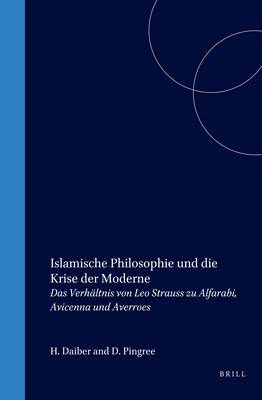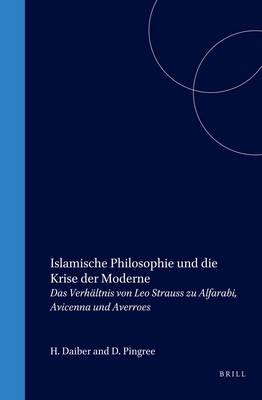
- Afhalen na 1 uur in een winkel met voorraad
- Gratis thuislevering in België vanaf € 30
- Ruim aanbod met 7 miljoen producten
- Afhalen na 1 uur in een winkel met voorraad
- Gratis thuislevering in België vanaf € 30
- Ruim aanbod met 7 miljoen producten
Zoeken
Islamische Philosophie Und Die Krise Der Moderne
Das Verhältnis Von Leo Strauss Zu Alfarabi, Avicenna Und Averroes
Georges Tamer
€ 340,45
+ 680 punten
Omschrijving
This book fills the gap in the research of Leo Strauss (1899 - 1973) showing the influence of Alfarabi (870 - 950), Avicenna (980 - 1037) and Averroes (1126 - 1198) on his thought. The first part is historically-philologically oriented and contains neglected material where it presents a new approach to Leo Strauss's work. The second part discusses Strauss's reaction towards the crisis of modernity, stimulated by Islamic philosophy, as well as his nomic understanding of religion as the essential features of his political philosophy. Since Alfarabi is the Muslim Philosopher who had the greatest influence on Strauss's thought, his philosophy will also be analysed. This book offers the opportunity to discover an interesting aspect of the encounter of cultures, and contribute to a modern reception of Islamic philosophy.
Specificaties
Betrokkenen
- Auteur(s):
- Uitgeverij:
Inhoud
- Aantal bladzijden:
- 364
- Taal:
- Duits
- Reeks:
- Reeksnummer:
- nr. 43
Eigenschappen
- Productcode (EAN):
- 9789004120297
- Verschijningsdatum:
- 28/02/2001
- Uitvoering:
- Hardcover
- Formaat:
- Genaaid
- Afmetingen:
- 165 mm x 242 mm
- Gewicht:
- 775 g

Alleen bij Standaard Boekhandel
+ 680 punten op je klantenkaart van Standaard Boekhandel
Beoordelingen
We publiceren alleen reviews die voldoen aan de voorwaarden voor reviews. Bekijk onze voorwaarden voor reviews.











